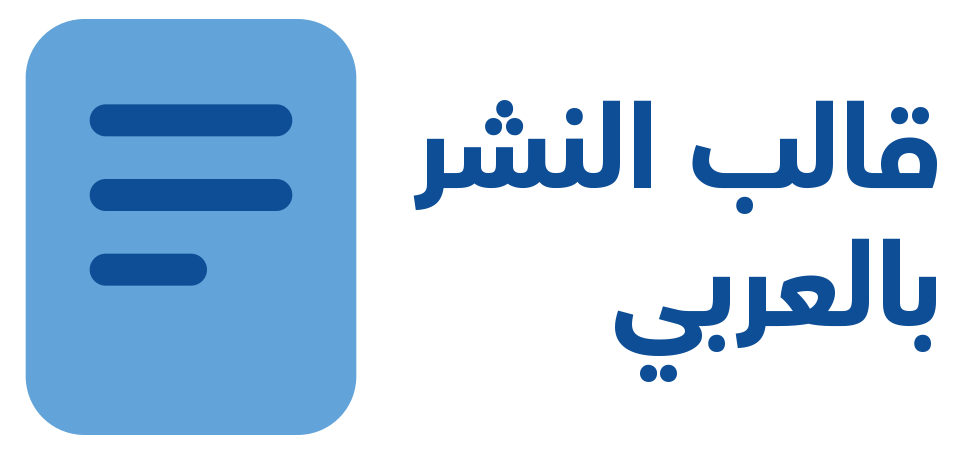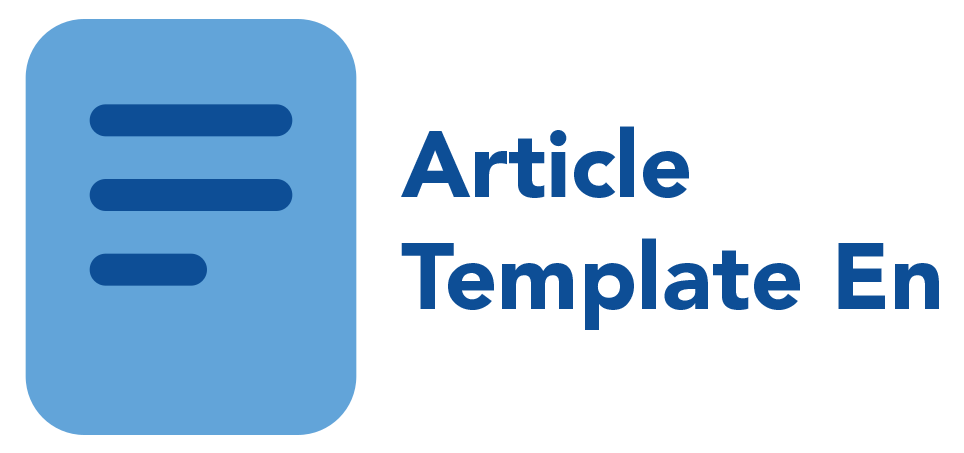Journal publishing rules
1. Editorial Policy
Al-Rifaq Journal of Knowledge adheres to a clear and rigorous editorial policy to ensure the quality of published content in accordance with recognized academic and ethical standards. The editorial policy includes the following:
• Journal Mission:
Al-Rifaq Journal of Knowledge is a peer-reviewed scientific journal aiming to publish original, innovative, and serious research addressing contemporary scientific issues within the fields of applied and human sciences. The journal strives to contribute to the advancement of knowledge and foster scientific communication at both local and international levels.
• Frequency:
The journal is published biannually (June and December) and accepts submissions year-round. Accepted papers are published in the nearest upcoming issue via the journal’s website.
• Open Access Policy:
All issues are freely accessible without restrictions, in compliance with copyright and intellectual property rights.
• Academic Integrity:
The journal strictly follows academic integrity and ethical standards in handling submitted and published research.
• Initial Screening:
Submissions are initially reviewed by the Editor-in-Chief to ensure relevance to the journal’s scope.
• Plagiarism Check:
Manuscripts undergo plagiarism screening using ithenticate:
- If similarity exceeds 20% (including references), the paper is automatically rejected and the author is notified.
- If acceptable, it is forwarded to an Associate Editor for compliance check with journal guidelines and academic style.
• Peer Review Process:
The journal follows a double-blind peer review system. A third reviewer may be consulted in case of conflicting decisions.
• Notification Timeline:
Authors receive an initial decision within 48 hours of submission. Final decisions are issued within a maximum of 2 months.
• Revisions:
Authors must submit revised manuscripts within 2 weeks of receiving the final feedback.
• Publication:
Accepted manuscripts are published in the next available issue.
• No Fast-Track Reviews:
The journal does not accommodate fast-track review requests to maintain fairness and transparency.
• Language Editing:
All accepted papers undergo professional language editing before being published on the journal’s website.
• Copyright:
Al-Rifaq Journal of Knowledge retains copyright of all published work through a signed copyright transfer agreement.
2. Peer Review Policy
The journal uses a double-blind peer review process, maintaining strict confidentiality for both authors and reviewers. The manuscript is not shared with anyone outside of the review team.
• Reviewers must:
- Maintain confidentiality.
- Decline to review if there’s a conflict of interest.
- Provide objective, constructive feedback.
• Editorial decisions based on reviewers' comments include:
- Revisions required.
- Rejection due to lack of scientific merit or unfavorable evaluations.
- Acceptance after successful review stages.
3. Publication Ethics Policy
The journal follows the highest ethical standards as guided by the Committee on Publication Ethics (COPE). Responsibilities are divided as follows:
1. Publisher Responsibilities:
- Support the editorial team, authors, and reviewers.
- Ensure smooth operation of publishing and ethical guidelines.
- Promote academic integrity and detect unethical practices like plagiarism.
2. Editor Responsibilities:
- Acknowledge manuscript receipt within two working days.
- Ensure fair, confidential reviews.
- Decline handling manuscripts where conflicts of interest exist.
- Base publication decisions on originality and scholarly merit.
- Refrain from using unpublished content for personal use.
- Act promptly on ethical complaints.
3. Reviewer Responsibilities:
- Decline review if unqualified or unable to meet deadlines.
- Avoid reviewing manuscripts with conflicts of interest.
- Maintain strict confidentiality.
- Provide objective and respectful feedback.
- Report any suspected plagiarism or duplication.
4. Author Responsibilities:
- Ensure accuracy and research integrity.
- Avoid simultaneous submissions to multiple journals.
- Cite all sources properly.
- Disclose funding or conflicts of interest.
- Include all contributors as authors and secure their consent.
- Notify the journal if errors are discovered post-publication.
4. Conflict of Interest Policy
Transparency is key. A conflict of interest is defined as any financial, personal, or professional relationship that may bias the evaluation, publication, or interpretation of research.
1. Authors:
- Must disclose any financial or non-financial conflicts in the cover letter and in the article itself.
- If no conflict exists, a statement should be included:
“The authors declare no conflict of interest.”
2. Editors:
- Must refrain from handling manuscripts where a conflict exists.
- The Editor-in-Chief assigns a neutral editor in such cases.
3. Reviewers:
- Must refuse reviews if any relationship with the author(s) might bias their judgment.
- Must notify the Editor-in-Chief of any conflict.
4. Procedures:
- The journal reserves the right to reject or retract articles where undisclosed conflicts of interest are discovered post-publication.
5. Plagiarism and Misconduct Policy
The journal is committed to publishing original content and adhering to ethical publishing standards.
1. Plagiarism:
- Authors must submit original research and cite all used sources.
- All manuscripts are checked for plagiarism using ithenticate.
- Similarity above 20% (including references) results in immediate rejection.
2. Action on Plagiarism:
- Before Publication: Immediate rejection and possible submission ban.
- After Publication: Formal retraction, notification to:
- The author’s institution.
- Funding bodies (if any).
- Original copyright holders.
3. Retraction Policy:
- The journal may retract articles post-publication if they involve:
- Plagiarism.
- Data manipulation.
- Unauthorized self-duplication.
4. Complaints and Appeals:
- Authors or readers may submit formal complaints via the official journal email.
- Each complaint receives a unique tracking number and is reviewed by an impartial internal committee.
5. Disclaimer:
- The views expressed in published articles are solely those of the authors. The journal is not liable for their accuracy or outcomes of use.
6. Open Access Policy
Al-Rifaq Journal of Knowledge provides open access to all its content to promote knowledge sharing. This includes:
- Non-commercial use of content.
- Redistribution, modification, and reuse of content, provided that:
- Proper attribution is given.
- Content is not used for commercial purposes.
7. Copyright & Intellectual Property Policy
• Intellectual Property Rights:
Authors retain all intellectual property rights. Proper attribution is required for reuse.
• Copyright:
Authors retain copyright while granting the journal a non-exclusive license to publish and distribute the work online and in print.
8. Publication Fees Policy
The journal operates under a completely free publishing model:
- No fees for:
- Submission.
- Processing.
- Publication.
- The journal:
- Does not accept commercial advertisements.
- Generates no revenue from commercial activities.
- Focuses on supporting open science in applied and human sciences.
9. Self-Archiving Policy
Aligned with its open access mission, the journal allows and encourages self-archiving.
1. Self-Archiving:
- Authors may deposit the final published version on personal or institutional websites.
- Citation details (title, authors, date) must be included.
2. Licensing & Use:
- Articles are published under the license: Creative Commons. This permits:
- Copying and sharing for non-commercial use.
- Modifying or building upon the work with proper attribution.
- Commercial use only with prior written consent.
3. Author Rights & Reuse:
- Authors may:
- Archive their work.
- Republish with credit to the original journal publication.
- Use for teaching or academic purposes with attribution.
- Request permission for commercial use or translation.
4. Backup & Preservation:
- Content is securely hosted and backed up by the journal’s hosting provider.
- A comprehensive backup policy ensures permanent access.
10. Data Sharing Policy
- All journal issues are electronically archived to ensure preservation.
- Published research data is regularly indexed in global databases including:
- Google Scholar
- CrossRef
- e-Marefa
- Scilit
- KISTI
- Semantic Scholar
- R-Discovery
This enhances the reach, visibility, and impact of the journal.
11. Appeals and Complaints
Appeals:
- Authors who believe a decision was unfair may file a formal appeal.
- Appeals must be submitted within 10 days of receiving the decision, with a clear rationale addressed to the Editor-in-Chief.
Complaints:
- Concerns related to journal policies or editorial conduct should be submitted in writing to the Managing Editor or Editor-in-Chief via email.
- Complaints must be fact-based, clear, and objective.







